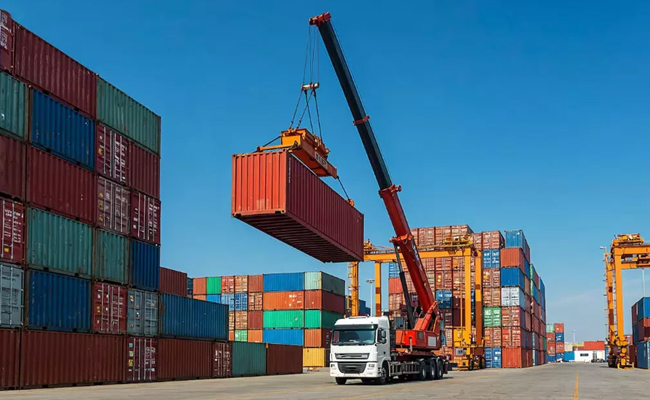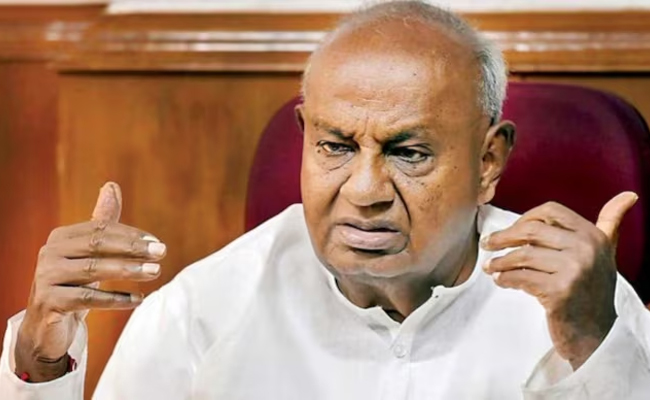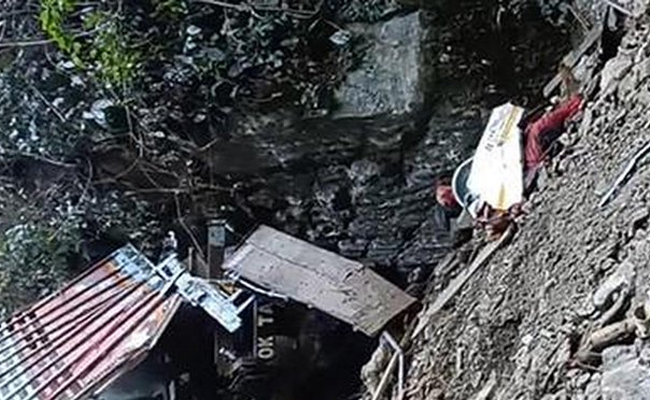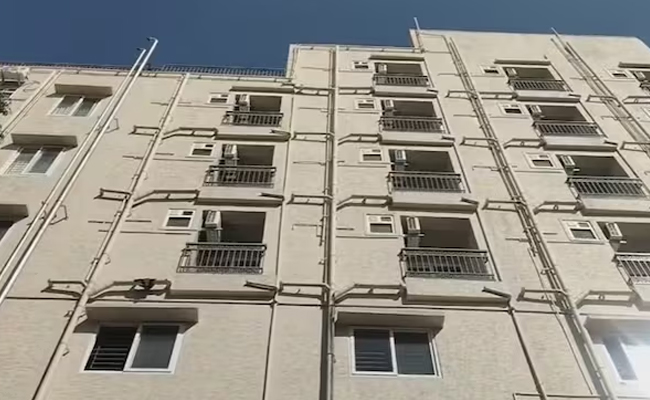Kolkata, July 28 : Alleging that more youths from Jammu and Kashmir have been joining militancy in recent years, former Chief Minister Omar Abdullah on Saturday regretted that "not enough attention" was paid to the state during the recent no-confidence motion in Parliament.
"In my tenure (as Chief Minister, 2009-2015) there were years when number of people who joined militancy was in twenties, while last year, it was 200 plus," AAbdullah said at the Think Federal Conclave here.
Slamming the BJP-ruled centre for its claim on the number terrorists killed in Jammu and Kashmir, he said the statistics was taken in isolation and not compared with the number of youths joining the militancy.
Coming down heavily on the BJP-PDP coalition that ruled the troubled northern state from 2015 till last month, Abdullah said militancy was "reborn" in Jammu and Kashmir in 2015 when the alliance was formed.
Refering to the no-confidence motion moved by the opposition in the Lok Sabha against the Narendra Modi government at the centre, he said: "Not enough attention was paid to Jammu and Kashmir' during the debate.
On centre-state relations, Abdullah said states have "little flexibility" to actually decide their own priorities in terms of spending funds from central schemes as these are coming in a "completely tied down" fashion.
To buttress his point, he refered to the recent development package of Rs 80,000 crore sanctioned for Jammu & Kashmir, and said the executing agency was decided by the centre.
"When you want to strengthen federalism, you need to strengthen the hands of elected representatives to make their own decisions," he said.
He also urged the removal of Indus Waters Treaty, saying it has denied Kashmiris the right to use their own water "without even consulting".
"Please, remove the Indus Water Treaty, let me hold and store water in my rivers the way I like. Let me build dams that allow me to generate electricity and I would not need single penny from the centre," he said.
He said there are "distinct differences" between the BJP or the NDA that his party had dealt with and the present leadership of the saffron party.
Taking a dig at the present leadership of the BJP, Abdullah said: "I have less experience dealing with the current leadership of the BJP. Our understanding and relationship with the NDA was with Atal Bihari Vajpayee's BJP. Most people accept it was a different BJP from the one we see today."
Let the Truth be known. If you read VB and like VB, please be a VB Supporter and Help us deliver the Truth to one and all.
New Delhi (PTI): India has proposed a preferential trade agreement (PTA) with Mexico to help domestic exporters deal with the steep tariffs announced by the South American country, a top government official said on Monday.
Mexico has decided to impose steep import tariffs - ranging from about 5 per cent to as high as 50 per cent on a wide range of goods (about 1,463 tariff lines) from countries that do not have free trade agreements with Mexico, including India, China, South Korea, Thailand and Indonesia.
Commerce Secretary Rajesh Agrawal said that India has engaged with the country on the issue.
"Technical level talks are on...The only fast way forward is to try to get a preferential trade agreement (PTA) because an FTA (free trade agreement) will take a lot of time. So we are trying to see what can be a good way forward," he told reporters here.
While in an FTA two trading partners either significantly reduce or eliminate import duties on maximum number of goods traded between them, in a PTA, duties are cut or removed on a limited number of products.
Trading partners of Mexico cannot file a compliant against the decision on imposing high tariffs as they are WTO (World Trade Organisation) compatible.
The duties are within their bound rates, he said, adding that their primary target was not India.
"We have proposed a PTA because its a WTO-compatible way forward... we can do a PTA and try to get concessions that are required for Indian supply chains and similarly offer them concessions where they have export interests in India," Agrawal said.
ALSO READ: Mexico's Congress approves higher tariffs on goods from India, China and non-FTA nations
Citing support for local production and correction of trade imbalances, Mexico has approved an increase in MFN (most favoured nation) import tariffs (5-50 per cent) with effect from January 1, 2026 on 1,455 tariff lines (or product categories) within the WTO framework, targeting non-FTA partners.
Preliminary estimates suggest that this affects India's around USD 2 billion exports to Mexico particularly -- automobile, two-wheelers, auto parts, textiles, iron and steel, plastics, leather and footwear.
The measure is also aimed at curbing Chinese imports.
India-Mexico merchandise trade totalled USD 8.74 billion in 2024, with exports USD 5.73 billion, imports USD 3.01 billion, and a trade surplus of USD 2.72 billion.
The government has been continuously and comprehensively assessing Mexico's tariff revisions since the issue emerged, engaging stakeholders, safeguarding the interests of Indian exporters, and pursuing constructive dialogue to ensure a stable trade environment benefiting businesses and consumers in both countries.
ALSO READ: Search operation ends in Anjaw truck accident, 20 bodies recovered
Federation of Indian Export Organisations (FIEO) Director General Ajay Sahai has said that Mexico's decision is a matter of concern, particularly for sectors like automobiles and auto components, machinery, electrical and electronics, organic chemicals, pharmaceuticals, textiles, and plastics.
"Such steep duties will erode our competitiveness and risk, disrupting supply chains that have taken years to develop," Sahai said, adding that this development also underlines the little urgency for India and Mexico to fast-track a comprehensive trade agreement.
Domestic auto component manufacturers will face enhanced cost pressures with Mexico hiking duties on Indian imports, according to industry body ACMA.





